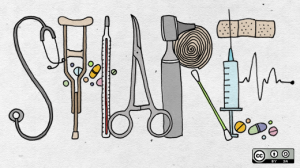House votes to repeal medical device tax
 In a bipartisan vote of 280-140, the U.S. House of Representatives passed H.R. 160, dubbed the “Protect Medical Innovation Act,” which essentially repeals Obamacare’s 2.3 percent medical device tax.
In a bipartisan vote of 280-140, the U.S. House of Representatives passed H.R. 160, dubbed the “Protect Medical Innovation Act,” which essentially repeals Obamacare’s 2.3 percent medical device tax.
House Majority Leader Kevin McCarthy, R-Calif., said in a prepared statement:
“In an attempt to cover its high costs, Obamacare raised taxes on medical devices, which destroys jobs, hampers investment and innovation, and threatens the development of and access to medical technology that seniors, American families, and our most vulnerable rely on. On several occasions now, the House has passed bipartisan bills repealing this widely unpopular tax, though the President has threatened another veto. I hope today’s bipartisan vote, which included the support 46 Democrats and every single Republican present, will make the President reconsider.”
Rep. Mimi Walters, R-Calif., also praised the passage of H.R. 160, noting that California “is home to more than 1,500 of the estimated 6,000-plus medical devices companies in the nation.” In a press release, she said:
“The medical device tax, which falls on businesses creating life-saving medical equipment like pacemakers and heart valves, hurts California more than any other state. Within my district, companies such as Edwards Lifesciences have been hit particularly hard by Obamacare’s medical device tax. As the only country in the world that levies an excise tax on medical device companies, we cannot continue to unfairly punish U.S. innovators and consumers who rely on these life-saving products. Republicans and Democrats alike agree, it’s time we repeal the job-killing medical device tax once and for all.”
Democratic Rep. Loretta Sanchez, who recently announced her candidacy to run for U.S. Senate in 2016, also cast a vote in support of repealing the medical device tax.
Despite bipartisan support in the House, the White House has already threatened to veto the bill. “Its repeal would take away a funding source for financial assistance that is working to improve coverage and affordability and would increase the Federal deficit,” the White House said in a statement.
According to the Congressional Budget office, the seemingly innocuous 2.3 percent medical device excise tax would have generated over $24.4 billion in tax revenues over the 2015-2025 period.
The Advanced Medical Technology Association said the tax has “put an additional burden on medical device innovators already struggling under the weight of America’s uncompetitive tax system” since it is “levied on medical device sales in the U.S. regardless of whether the company is making a profit.”
But the Center on Budget and Policy argued otherwise, saying that the industry lobbyists distort tax’s impact:
- “The tax does not single out the medical device industry for unfair treatment. The excise tax is one of several new levies on sectors that are gaining business due to health reform. The expansion of health coverage is increasing the demand for medical devices, which could offset the effect of the tax.
- “The tax will not cause manufacturers to shift production overseas. The tax applies equally to imported and domestically produced devices, and devices produced in the United States for export are tax-exempt. The claim that the tax will lead to production moving overseas thus is a talking point that lacks any foundation.
- “The tax will have little effect on innovation in the medical device industry. To the contrary, health reform may well spur medical device innovation by promoting more cost-effective ways of delivering care.”
If H.R. 160 is enacted, resulting in a loss of more than $20 billion in federal funding, the Pay-As-You-Go Act of 2010 would go into effect, requiring Congress to “offset the cost of repeal by increasing other taxes or reducing spending.”
The bill now goes to the Senate for consideration.
Related Articles
Bankruptcy Bill Violates Rule
Katy Grimes: News comes from the Senate today that AB 155, the union-backed bill preventing cities and municipalities from filing
CalWatchdog Morning Read – July 26
Women stand to make only modest gains in Legislature in November Gavin Newsom has habit of plagiarism Housing solution:
Meg "wins" dismal debate
John Seiler: My take is that this was a dismal debate. Neither candidate is qualified to be governor. A state



